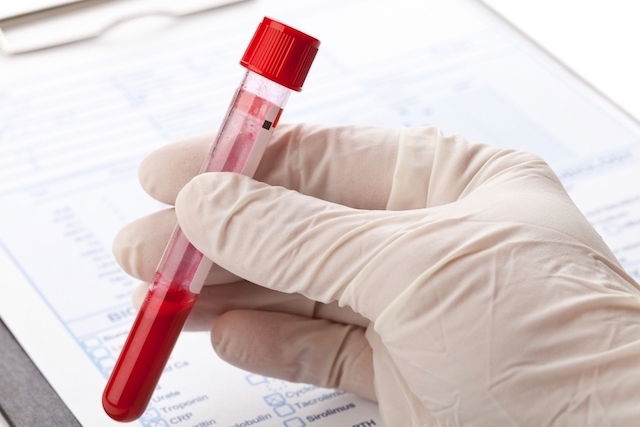Anti-CCP, or anti–cyclic citrullinated peptide, is a type of test widely used to aid in the diagnosis of rheumatoid arthritis. This test aims to detect the presence of CCP autoantibodies in the blood, which are antibodies produced by the immune system and that attack the healthy cells and tissues of the joints.
This test is usually performed together with a rheumatoid factor test, which is another type of test to detect rheumatoid arthritis. However, anti-CCP helps to provide a more accurate diagnosis, because rheumatoid factor can be present in other diseases such as lupus or Sjögren's Syndrome, for example, or even in healthy people.
Also recommended: Rheumatoid Arthritis (RA): Symptoms, Causes & Treatment tuasaude.com/en/rheumatoid-arthritisAnti-CCP, on the other hand, is more specific and when positive indicates the presence of rheumatoid arthritis.

What is it for?
The anti-CCP test is used to measure the amount of CCP antibodies produced by the immune system. The antibodies attack the lining of the joints, causing inflammation and other symptoms of rheumatoid arthritis, like chronic pain, swelling, difficulty holding objects or walking, and even joint deformity.
How the test is performed
The anti-CCP test is very simple, and is done by collecting a blood specimen that is sent to the lab for analysis.
In the laboratory, the test is performed using the ELISA immunoenzymatic method. After the sample is properly processed, reagents and enzymes are added to it, which, when they bind to the CCP antibodies, produce a color indicating a positive reaction for rheumatoid arthritis.
No special preparation is required to perform the anti-CCP test. You are advised to inform your doctor about any possible health problems, as well as any medications, vitamins or dietary supplements you are taking.
What results mean
In healthy people, the anti-CCP test is usually negative, with values lower than 20.0 U/mL, which means that no CCP antibodies were found in the body and the person does not have rheumatoid arthritis. However, values above 20 U/mL may indicate rheumatoid arthritis.
The results of the anti-CCP test are usually analyzed together with the rheumatoid factor test, as these tests can be done at the same time or the doctor may request the rheumatoid factor test first and, if positive, order the anti-CCP test to confirm rheumatoid arthritis.
The test results help to confirm rheumatoid arthritis. Results may be reported as:
- Positive anti-CCP and positive rheumatoid factor: indicates that the person has rheumatoid arthritis; Positive anti-CCP and negative rheumatoid factor: may mean that the person is in the early stages of rheumatoid arthritis or that they may develop the disease in the future;
- Negative anti-CCP and negative rheumatoid factor: indicates that the person does not have rheumatoid arthritis.
These results should always be interpreted and evaluated by the ordering physician and, in almost all cases, further testing is necessary to help investigate the underlying cause of your symptoms.






























